
How to Choose the Right Menu Management Platform
Key Menu Management Features for Senior Living and Healthcare Operators
In today’s healthcare and senior living environments, automated menu management is no longer a luxury – it’s a necessity. Gone are the days of recipe binders, sticky notes and relying on memory for resident preferences and dietary needs.
As expectations for personalized care, dietary accuracy and operational efficiency continue to rise, foodservice teams need more than manual processes to thrive.
This practical guide will help you navigate the landscape of senior living and healthcare menu management platforms, highlighting the most impactful features, overlooked capabilities and practical criteria for choosing the right menu planning tools for your operations.
What is a Menu Management Platform?
A menu management platform is a digital tool that helps senior living and healthcare operators efficiently plan, organize and manage their personal menus.
The best platforms do more than manage recipes and build menus. They help with dietary compliance, improve kitchen operations and control food costs.
Designed specifically for the needs of the industry, from independent living to skilled nursing and memory care, these solutions support better care, improve satisfaction and empower foodservice teams to work more efficiently.
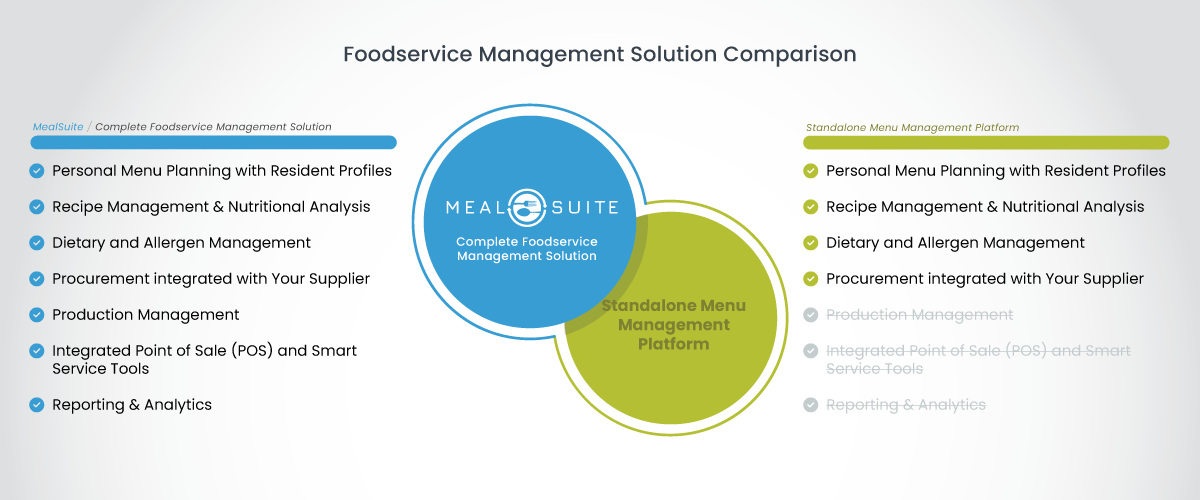
What are the Benefits of a Menu Management Platform?
Ensure Regulatory Compliance
A strong dietary management system helps with allergen tracking, therapeutic diets and easy reporting for audits.
Streamline Menu Planning & Production
With automated foodservice solutions, teams can centralize personal menu creation, scale recipes and automate production planning across multiple care levels.
Reduce Ingredient and Food Costs
Senior living foodservice software supports cost control through portion standardization, live menu pricing and real-time analytics.
Improve Resident and Patient Satisfaction
Easy personalized menus and consistent meal quality help operations run smoothly. Paperless ordering solutions improve satisfaction and allow for more interaction with diners.
Support Quality Care and Clinical Outcomes
Integrated dietary profiles and EHR integration ensure meals align with care plans, reducing errors and supporting better health outcomes.
Boost Operational Efficiency & Improve Teamwork
From foodservice production planning to communication across departments, the right platform reduces manual tasks and scales easily across communities. A cohesive system means all menu and diet changes are visible to your staff. This reduces pressure and lowers the chance of mistakes.
What Features Should I Look for in a Menu Management Platform?
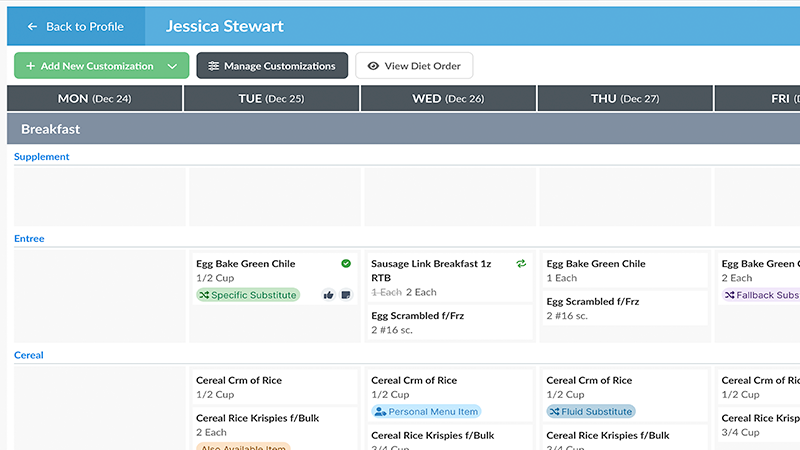
Personal Menu Planning with Resident Profiles
Personalization is central to clinical care, regulatory requirements and resident satisfaction. Menu planning tools help automate personalized menus. They use resident data and profiles to track dietary needs, preferences, allergens and textures. With quick customizations, you can adjust menus to fit your patients' or residents' needs. This saves time, cuts food waste and improves nutrition outcomes.
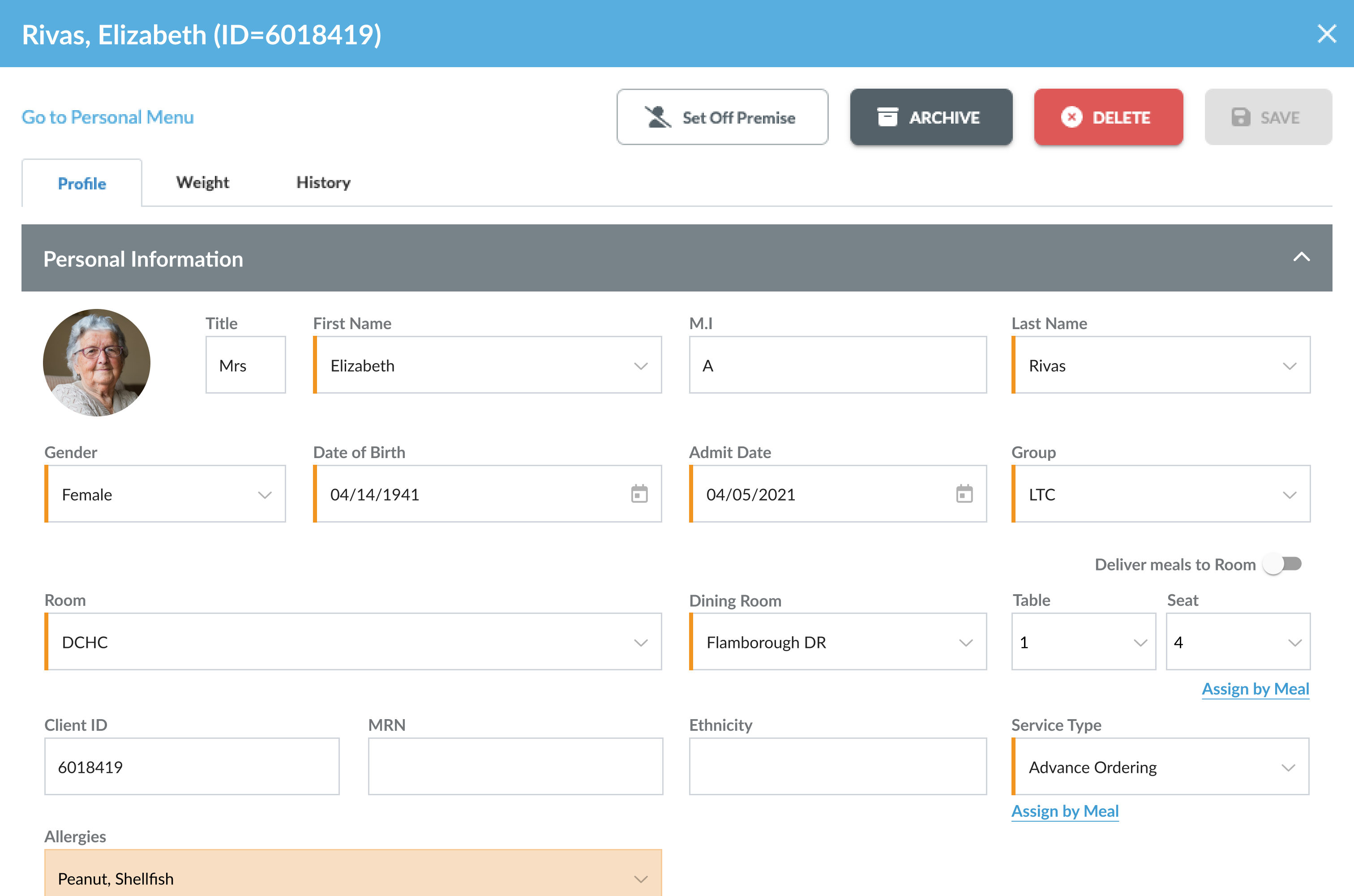
Other functionalities to look for:
Electronic Health Record (EHR) allows for real-time data updates. This includes information like Admission, Discharge and Transfer (ADT), allergens, diet orders and photos. These updates flow from your EHR to the menu management platform.
Touchscreen Menu Boards: New menus and updates can be published instantly to touchscreens in common areas. No more time wasted on printing and re-printing.
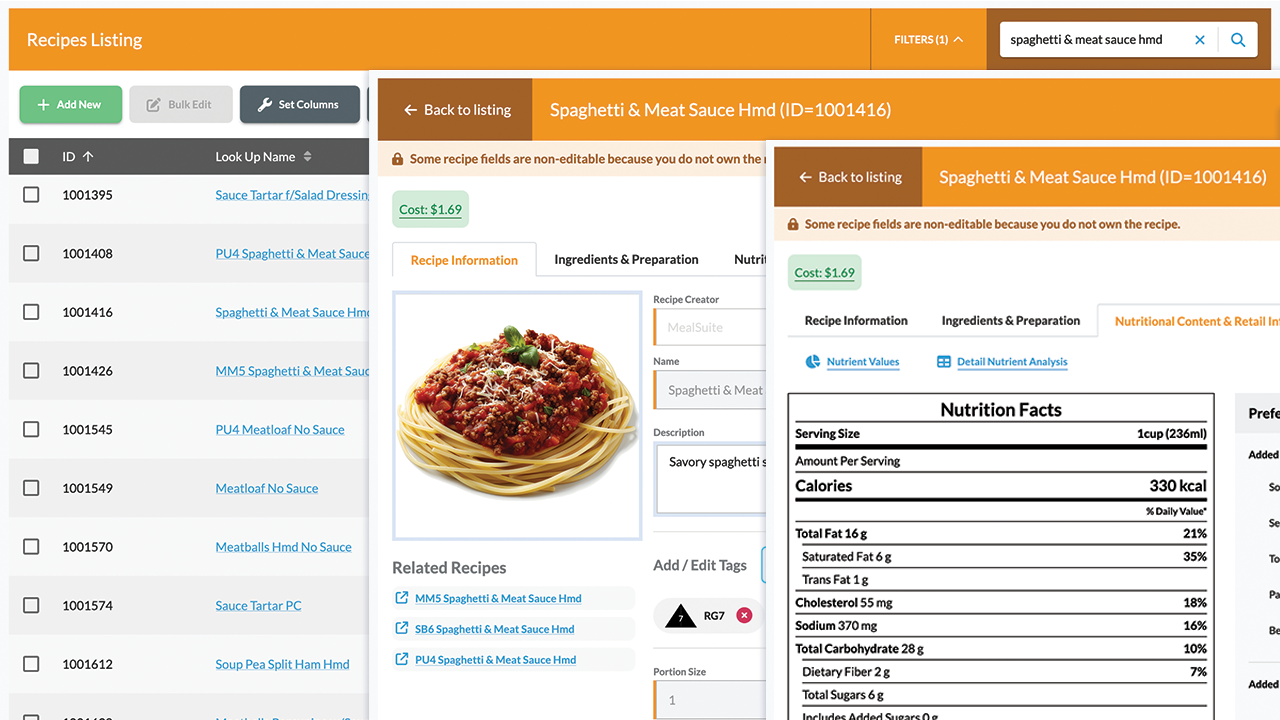
Recipe Management & Nutritional Analysis
Dietary management systems have a large database of thousands of dietitian-approved recipes. They allow users to customize or create new recipes. This is done using pre-coded ingredients and live nutritional data from food vendors or from the USDA.
Recipes are automatically checked for allergens and dislikes. This helps provide safer service and a personal touch, no matter who is preparing and serving meals.
Recipe and nutrition analysis reports give clear insights into the nutrition of menus, recipes and food items. They help ensure dietary compliance and support resident health. Built-in ingredient databases make it easy to create accurate nutrition labels.
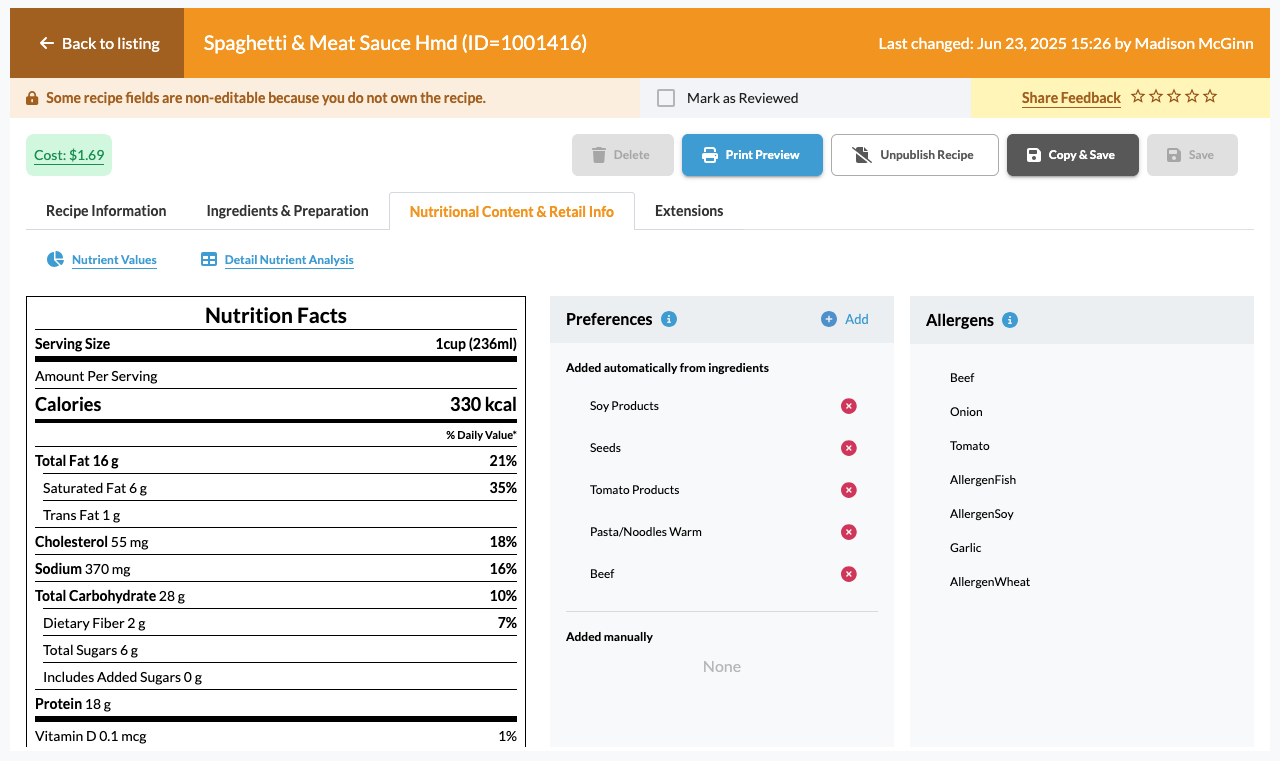
Dietary & Allergen Management
Managing dietary restrictions and allergens in senior living and healthcare foodservice isn’t just a best practice – it’s a critical safety and legal duty.
Built-in dietary tagging and allergen tracking systems are important for spotting risks. Automatic filtering of menu items based on resident profiles helps make sure every meal meets individual needs.
AI-fuelled allergen management is a forward-thinking feature that doesn’t just flag allergens but anticipates potential risks before they reach the plate.
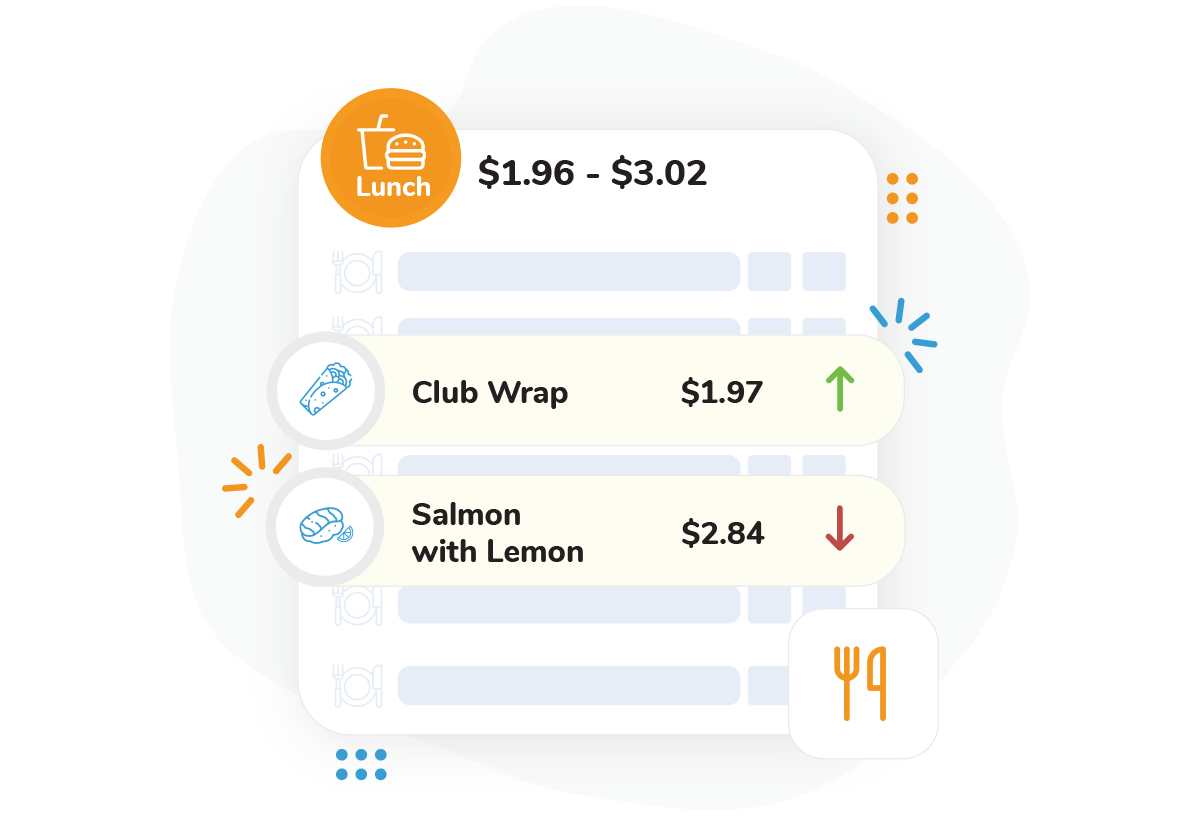
Procurement Integrated with Your Supplier
Procurement can often become a bottleneck in senior living and healthcare foodservice, considering the dynamic environments where pricing, availability and resident needs are constantly shifting. That’s why integrated procurement tools are essential.
Look for senior living foodservice software that offers:
- Live pricing and availability from your preferred food vendors, so you can make informed, cost-effective purchasing decisions.
- Automated order generation based on menu cycles and resident census. Take the guess work out of ordering and order just what you need, when you need it. Preventing over-ordering and stock-outs.
- An integrated procurement ecosystem that aligns finance, kitchen and vendor relationships – streamlining operations, improving forecasting and supporting long-term cost control.
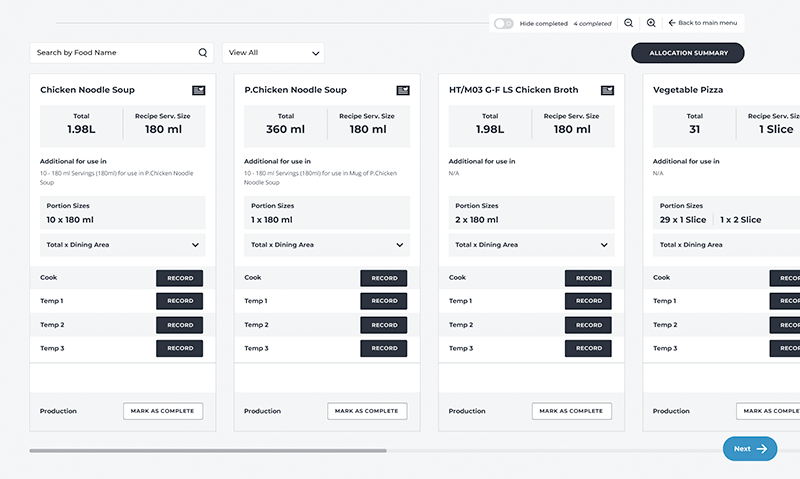
Production Management
In busy senior living and healthcare kitchens, process reliability is very important. Your software should help with this part of your operation, too.
Purpose-built production solutions calculate your production needs in real-time based on your menu and resident census, eliminating waste and risk of under producing. Production sheets and recipe binders can be replaced by digital touchscreen displays. Built-in HACCP and food safety tools like temperature sensors and digital checklists enhance compliance and reduce risk
By streamlining workflows, these tools help teams consistently deliver safe, high-quality meals.

Integrated Point of Sale (POS) & Smart Service Tools
Having your menu management platform fully integrated with a Point of Sale (POS) system is a game-changer for senior living and healthcare foodservice operations. This seamless connection links menu items directly to resident accounts and dietary profiles, ensuring accurate, personalized service at the point of sale.
Choose a system with the service hardware you need for an efficient operation – whether it’s taking orders at the bedside or tableside with tablets, supporting self-ordering on personal devices or kiosks or quick service at cafes and bistros.
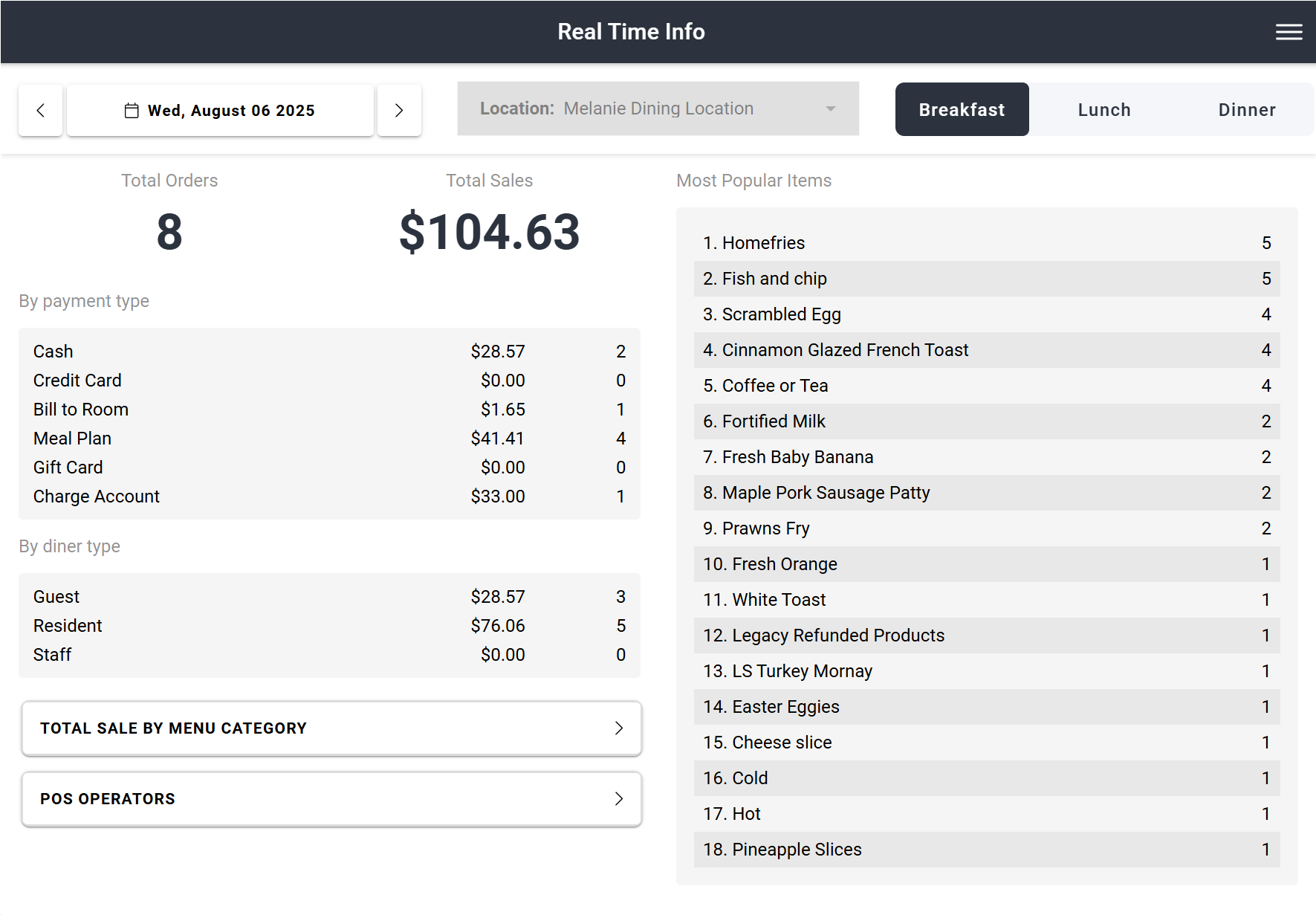
Reporting & Analytics
Real-time transaction tracking and meal popularity reporting give dietary and finance teams actionable insights – helping identify peak service hours for smarter staffing and highlighting top-performing menu items to guide purchasing and reduce waste.

 HOME
HOME 